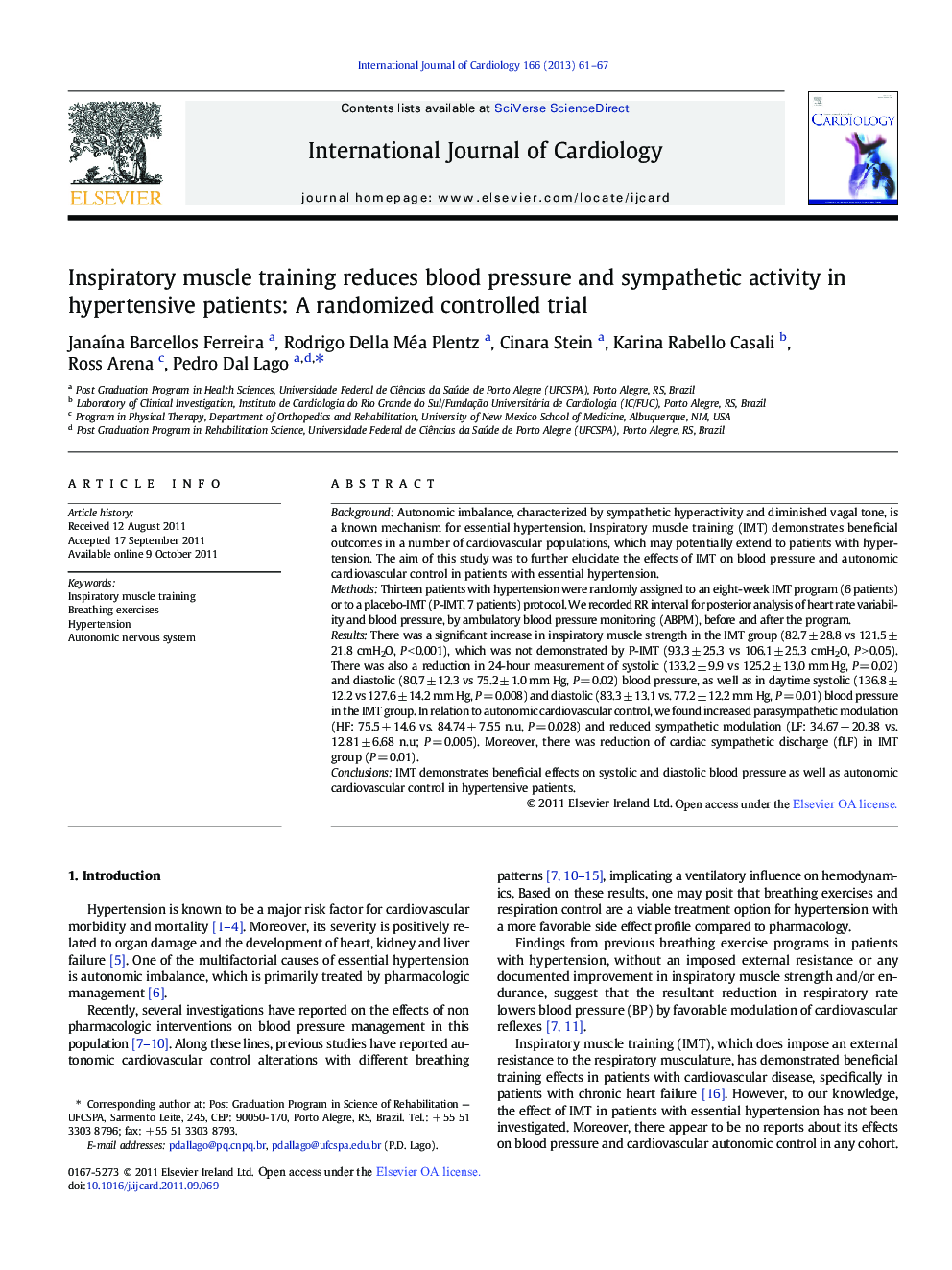| Article ID | Journal | Published Year | Pages | File Type |
|---|---|---|---|---|
| 5977365 | International Journal of Cardiology | 2013 | 7 Pages |
BackgroundAutonomic imbalance, characterized by sympathetic hyperactivity and diminished vagal tone, is a known mechanism for essential hypertension. Inspiratory muscle training (IMT) demonstrates beneficial outcomes in a number of cardiovascular populations, which may potentially extend to patients with hypertension. The aim of this study was to further elucidate the effects of IMT on blood pressure and autonomic cardiovascular control in patients with essential hypertension.MethodsThirteen patients with hypertension were randomly assigned to an eight-week IMT program (6 patients) or to a placebo-IMT (P-IMT, 7 patients) protocol. We recorded RR interval for posterior analysis of heart rate variability and blood pressure, by ambulatory blood pressure monitoring (ABPM), before and after the program.ResultsThere was a significant increase in inspiratory muscle strength in the IMT group (82.7 ± 28.8 vs 121.5 ± 21.8 cmH2O, P < 0.001), which was not demonstrated by P-IMT (93.3 ± 25.3 vs 106.1 ± 25.3 cmH2O, P > 0.05). There was also a reduction in 24-hour measurement of systolic (133.2 ± 9.9 vs 125.2 ± 13.0 mm Hg, P = 0.02) and diastolic (80.7 ± 12.3 vs 75.2 ± 1.0 mm Hg, P = 0.02) blood pressure, as well as in daytime systolic (136.8 ± 12.2 vs 127.6 ± 14.2 mm Hg, P = 0.008) and diastolic (83.3 ± 13.1 vs. 77.2 ± 12.2 mm Hg, P = 0.01) blood pressure in the IMT group. In relation to autonomic cardiovascular control, we found increased parasympathetic modulation (HF: 75.5 ± 14.6 vs. 84.74 ± 7.55 n.u, P = 0.028) and reduced sympathetic modulation (LF: 34.67 ± 20.38 vs. 12.81 ± 6.68 n.u; P = 0.005). Moreover, there was reduction of cardiac sympathetic discharge (fLF) in IMT group (P = 0.01).ConclusionsIMT demonstrates beneficial effects on systolic and diastolic blood pressure as well as autonomic cardiovascular control in hypertensive patients.
